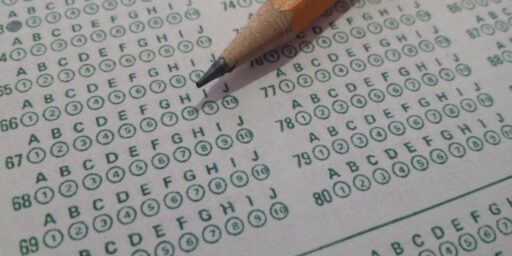GETTING INTO COLLEGE
MSNBC reports the startling news that poor kids from rural areas are less likely to get into elite colleges than their rich, urban counterparts.
In an ideal world, the nation’s elite schools would enroll the most qualified students. But that’s not how it works. Applicants whose parents are alums get special treatment, as do athletes and rich kids. Underrepresented minorities are also given preference. Thirty years of affirmative action have changed the complexion of mostly white universities; now about 13 percent of all undergraduates are black or Latino. But most come from middle- and upper-middle-class families. Poor kids of all ethnicities remain scarce. A recent study by the Century–Foundation found that at the nation’s 146 most competitive schools, 74 percent of students came from upper- middle-class and wealthy families, while only about 5 percent came from families with an annual income of roughly $35,000 or less.
Many schools say diversity–racial, economic and geographic–is key to maintaining intellectually vital campuses. But Richard Kahlenberg of the Century Foundation says that even though colleges claim they want poor kids, “they don’t try very hard to find them.” As for rural students like Spangenburger, many colleges don’t try at all. “Unfortunately, we go where we can generate a sizable number of potential applicants,” says Tulane admissions chief Richard Whiteside, who recruits aggressively–and in person–from metropolitan areas. Kids in rural areas get a glossy brochure in the mail.
***
Even when poor rural students have the grades for top colleges, their high schools often don’t know how to get them there. Admissions officers rely on guidance counselors to direct them to promising prospects. In affluent high schools, guidance counselors often have personal relationships with both kids and admissions officers. In rural areas, a teacher, a counselor or even an alumnus “can help put a rural student on our radar screen,” says Wesleyan admissions dean Nancy Meislahn. But poor rural schools rarely have college advisers with those connections; without them, admission “can be a crapshoot,” says Carnegie Mellon’s Steidel.
So, basically, it’s better to have affluent parents, go to a good school, and benefit from the connections that ensue. Who knew?






I am wowed.
—